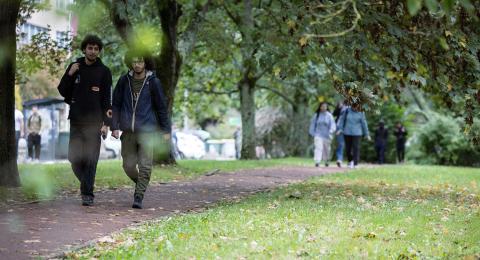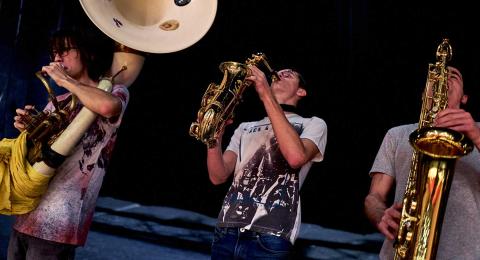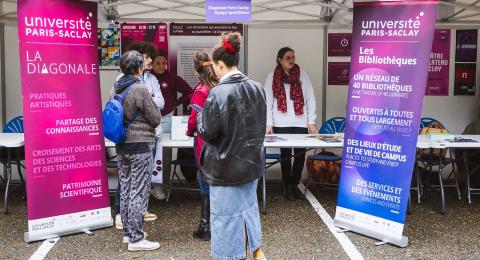Computer Science
The Computer Science master delivers a top-tier scientific and technical education, blending academic rigor with a strong focus on industrial applications and research. Its rich diversity is showcased in 14 initial training tracks and 3 apprenticeship tracks, each exploring innovative and cutting-edge areas of the field.
The Computer Science Master’s Program at the ISN Graduate School comprises 17 tracks, organized into five major thematic areas that are not mutually exclusive:
- Data Science, Big Data (4 M2 tracks)
- Systems, Networks, Security (6 M2 tracks)
- Algorithms, Theoretical Computer Science, Quantum Computing, HPC (5 M2 tracks)
- Human-Computer Interaction (1 M2 track)
- Teaching (1 M2 track)
The Computer Science Master’s is designed to ensure a natural continuity between the first year (M1) and the second year (M2) of the same track. Subject to prerequisite validation by the program director, bridges exist between the different tracks and campuses, particularly between M1 and M2 within the same thematic area. Finally, most tracks are also open to external applicants, welcoming candidates from other academic backgrounds, both nationally and internationally.
Information
Master’s Year 1
Master’s Year 2
Skills
Computer Science:
- Analyze and model a problem from a computer science perspective, considering its full scope and within various fields of application, in connection with end users.
- Relate a category of problems to the appropriate solving algorithms and evaluate their relevance, including limits of use and effectiveness.
- Identify problems that can be parallelized or distributed, choose and implement the appropriate computing model to solve them.
- Master the key issues of computer system security and data protection.
- Understand and implement principles for managing structured or unstructured databases and designing human-computer interfaces.
- Implement secure and reliable solutions.
- Analyze the results of a proposed solution in relation to an application domain and from the studied perspective (performance, scalability, security, energy consumption, etc.).
- Analyze, interpret, and synthesize results from complex computer systems.
- Characterize the output of the complex computer systems that have been developed.
- Validate the functioning of a complex computer system through testing and result analysis.
- Ensure the long-term evolution of implemented systems.
**Transversal Competencies:**
* Independently use advanced digital tools for one or more professions or research areas in the field.
* Mobilize highly specialized knowledge, some of which is at the forefront of understanding in a given field of work or study, as the basis for original thinking.
* Develop a critical awareness of knowledge in a field and/or at the intersection of several fields.
* Solve problems to develop new knowledge and new procedures, and integrate knowledge from different fields.
* Make innovative contributions in high-level exchanges and in international contexts.
* Take on responsibilities to contribute to knowledge and professional practices and/or to review the strategic performance of a team.
* Communicate for training or knowledge transfer purposes, both orally and in writing, in French and at least one foreign language.
* Respect principles of ethics, professional conduct, and social and environmental responsibility.
Learning outcome targets
The Computer Science Master’s program at Université Paris-Saclay trains tomorrow’s scientists and computer science experts through research, equipping them to address national and international economic, societal, and environmental challenges such as Artificial Intelligence, Big Data, Human-Computer Interaction, Software Security, Cybersecurity, and Quantum Computing. The involvement of researchers and faculty members ensures a meaningful connection between education and research within a prestigious master’s framework. Students benefit from immersion internships in research laboratories, the PhD track, and scholarships from IDEX, the CMA SaclAI School, and the DATAIA cluster.
Connections with the socio-economic world are fostered through companies engaged in our apprenticeship tracks, with the support of Apprenticeship Training Centers (CFA), numerous internships in companies during both M1 and M2, as well as contributions from several associated professors from industry. Finally, international attractiveness takes several forms: firstly, through the many tracks taught in English, and also thanks to IDEX excellence scholarships supporting incoming and outgoing mobility, which ensure strong international exposure and a diverse range of student backgrounds in the Computer Science Master’s program.
Target audience
The computer science master tracks recruit in France students holding a bachelor's degree in computer science, a double degree in computer science and mathematics or computer science and life sciences, as well as students who have completed the first or second year of an engineering school program. Internationally, we admit students holding a bachelor’s degree in Computer Science or in Science and Engineering.








